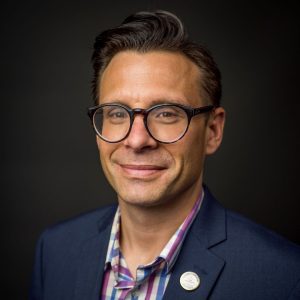In a recent article, “The True Cost of the Churchgoing Bust,” Derek Thompson wrote,
“As an agnostic, I have spent most of my life thinking about the decline of faith in America in mostly positive terms…. Only in the past few years have I come around to a different view. Maybe religion, for all of its faults, works a bit like a retaining wall to hold back the destabilizing pressure of American hyper-individualism.” Thompson later added, “Organized religion provided many things at once: not only a connection to the divine, but also a historical narrative of identity, a set of rituals to organize the week and year, and a community of families.” The rest of his article outlines his case that technology isolates people from and undermines religious practices. To my surprise (and to his), Thompson then overcomes his agnostic bent and advocates for embracing the positive aspects of religious faith and practice.
Cultural commentators in many sectors are now lamenting the combined impact of expressive individualism and technology on human behavior, particularly on the socialization of young men. Teenage boys are voracious tech consumers, their attention dominated by screen time, which is detrimental to both their physical and relational development. The results are showing up in secular studies related to mental health, dating patterns, economic independence, emotional maturity, and marriageability. In all these areas, boys show significant declines in healthy behavior compared to previous generations. And it’s not just boys, girls and young women are also impacted – just not as dramatically yet.
The prevalence of technology buttressed by expressive individualism (America’s dominant worldview right now) enhances and intensifies social isolation. These two forces working together are a deadly combination.
The gospel, the church, and the challenge/expectations of Christian service are antithetical to expressive individualism. The gospel centers on God (not you), the church is about others (not you), and God’s mission (serving others and sharing the gospel) is definitely not about you. Thompson is right about religion – at least Christianity – which shifts us from self-focus to others, from self-care to community, and from self-indulgence to sacrificial service. Religious faith shifts out focus from screen-mirroring self to God and others.
Despite our critics, historic Christianity provides something our culture desperately needs – a worldview that creates healthy individuals and communities. While we readily admit our worldview and resulting behaviors will always be flawed by sin, even a less-than-perfect Christian faith system is still a positive force for good. American culture needs undergirding by a Christian worldview to thrive. We may discover we need it to survive.

Reflections on the Bible Teaching Conference
Hear from attendees what they learned at the Bible Teaching Conference.

Hope in Suffering
Gateway student Matt Bodden is an evangelist who is ready to answer the question of suffering with the gospel.

The Gateway Journal of Theology Inaugural Issue
Read all new articles in the inaugural issue of The Gateway Journal of Theology.



